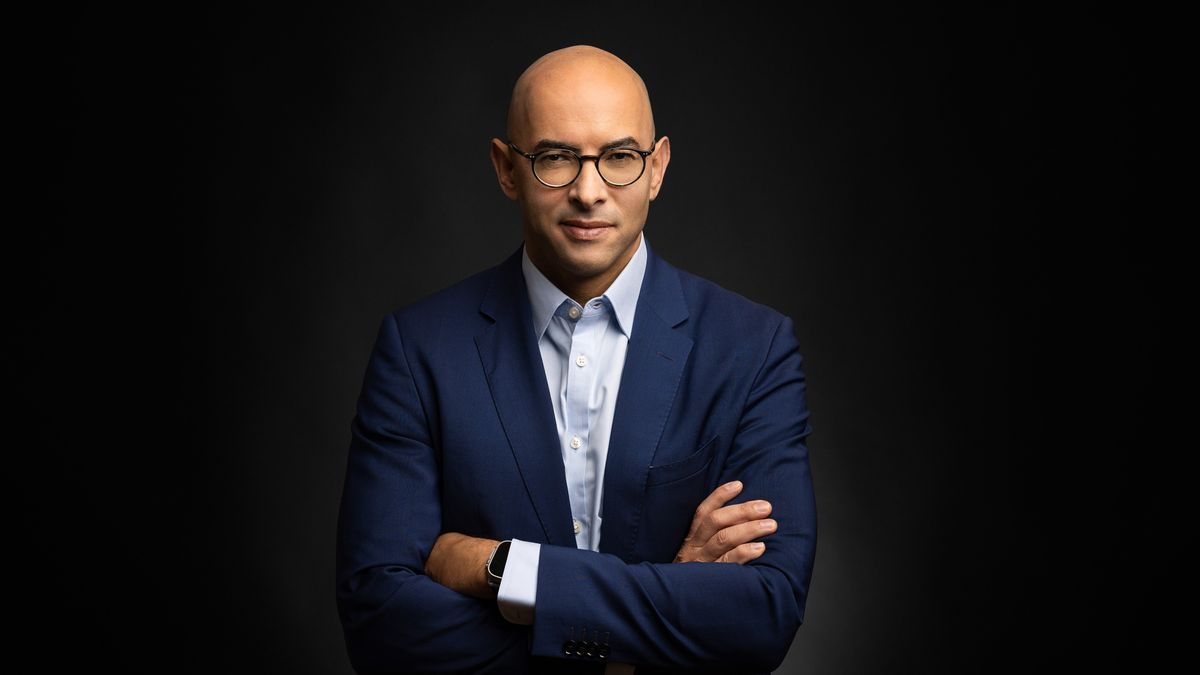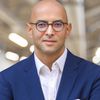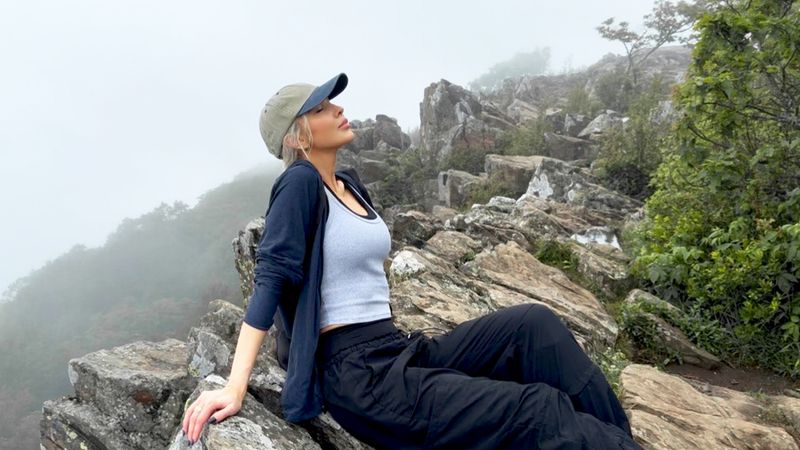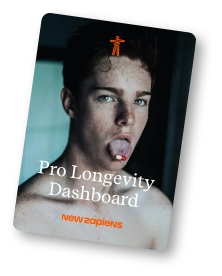Longevity–key factors for a healthier, longer life

In the past years we have observed a growing trend – Longevity. More people want to live healthier longer or put in scientific terms, they want to increase their healthspan and lifespan. Healthspan is the time you are “more or less” healthy, while lifespan is the time you are alive regardless of health or sickness.
Especially after COVID the awareness that taking care of one’s health is important to new heights. The existing biohacking scene exploded, and disciples of famous biohackers looked for new ways to increase their healthspan or even reduce their aging rate. New markets opened up and new treatments surfaced, here are some examples:
- IV Drips: which are intra-venous infusions with vitamins, NAD, etc. with cool names like “Detox”, “anti-hangover”, “Rejuvenation” or so.
- HBOT: hyperbaric oxygenation therapy in a pressured tube
- IHHT: intermittent hypo-/hyper oxygenation therapy, where you cycle between low and high oxygen inhalation, basically simulating high and low altitude
- Red-Light Therapy: which is supposed to help with rejuvenation and mitochondrial activation
Also the supplement market exploded, driven by scientist like David Sinclair with thousands of readers of “Lifespan – why we age and why we don’t have to” following his supplement stack like Reservatrol or Quercetin regimen that had good results in mouse experiments.
I feel that there is so much attention on how to hack oneself to healthier living while many forget the basic principles. All experts and scientists agree on the following lifestyle modifications that lead to a healthier life:
- Physical activity/ exercise at least 150 min every week. Building strength and endurance is unequivocally the most important element to stay healthy. Building strength, stability and endurance allows us to prepare for sarcopenia, the loss of muscle mass as we age. If we are not exercising, we are loosing about 10% muscle mass every 10 years. By building an exercise routine as early as possible we can reduce that aging phenomenon and prevent frailty which often results in falls, bone fractures and ultimately preventable deaths.
- A balanced diet that reduces sugar intake and focuses on the right amount of fiber, protein and complex carbohydrates
- Sleep: never in history of mankind has sleep gotten the attention it deserves – sleep quality, quantity, regularity and timing are key to good, regenerative sleep for your body and brain!
- Reduction of stress reduces the levels of cortisol which has positive effects on many levels.
- Social interactions and mental fitness – we also need to train our brain and keep it active. Spending time in nature and with close friends improves brain function.
While it is tempting to focus on the next pill or cool intervention I would like to highlight the importance of the basics above. In my opinion they make up for 95% of living healthier longer.
We should focus more on getting the basics right, reducing toxins (highly processed food, refined sugar, reduce alcohol consumption, etc.) and supplement deficiencies (Vit D3/K2, Magnesium, Omega 3, etc.). I feel that more and more people are getting less mindful of their respective lifestyle choices and do not want to change their habits. Instead, they spend a lot of time and in many cases a lot of money on the latest gadgets and therapies sometimes with weak evidence levels.
One good example of a somewhat affordable interventions are actions around the concept of hormesis which is basically is somewhat “what doesn’t kill you makes you stronger” or “the dosage makes the poison”.
Let me explain:
- High temperatures for a longer period can be deadly for us humans. But exposing yourself to 20-30 min of Sauna (80-90°C) every day, can reduce your all-cause mortality by 40% (Rhonda Patrick has all the details here). "Heat-shock proteins" are generated that have a positive effect - see below.
- Extreme cold for a longer period can also be deadly. But exposing yourself for short periods to the cold seems to have positive effects and “cold-shock proteins” are being expressed which help to repair damaged proteins, just like “heat-shock proteins” do after Sauna. The activation of mitochondria and build-up of brown fat tissue (fat cells with more mitochondria look more brownish) has yet to be better studied.
- Depriving yourself from food for a long time can also end with death. But fasting for 3-7 days has shown to have a very positive effect on the gut microbiome and supports autophagy, which is the self-cleaning mechanism of the human body. Old or dysfunctional cells are being recycled as the body turns into emergency mode and uses every resource to increase the chances of survival. This also eliminates socalled Zombi-cells or senescent cells, which are dysfunctional cells that have not initiated apoptosis, the programmed cell-death. Those cells continue to exist and produce toxins. Fasting therefore is a self-cleaning process that helps to reset the microbiome as well.
Another low-cost intervention is breathwork. I will not get into details here but breathing exercises in different forms have direct effects on our body. Just look up Wim Hof and how he manipulates his immune response through breathing.
Let’s look at the “4 horsemen” as Peter Attia calls the leading causes of death:
- Cardiovascular disease (heart-attacks, strokes, etc.)
- Cancer
- Neurodegenerative diseases (Alzheimer’s, Dementia of any kind)
- Metabolic syndrome (Adiposity, Insulin resistance with type II diabetes, hyperlipidemia, hypertension)
Today we know that regular exercise, sufficient sleep, a balanced diet with limited refined sugar and a real (not virtual) social network with regular in-person interaction are the best ways to reduce the risk of getting sick.
If the above listed lifestyle interventions do not reduce high cholesterol levels or high blood pressure because of genetic predispositions then the use medication is highly recommended. High blood pressure over time damages the inner lining of blood vessels called “intima”. High cholesterol levels in combination with high blood pressure increases the risk of plaques which are cholesterol depositions underneath the intima. These plaques create reduced blood flow which reduces the supply with oxygen of the respective tissue and the risk of blood clots increases which can cause embolisms, heart attacks or strokes.
In general, we should make use of preventative medicine. In many countries there are regular check-ups which are covered by most insurances. I would also advise to invest more in preventative care to detect any diseases as early as possible. The earlier the disease is detected the higher the chances of curing it.
Longevity research has made significant progress in recent years, and there are many exciting developments expected in the future. Here are some of the most promising areas:
- Genome Editing and Gene Therapy: With technologies like CRISPR/Cas9, it is possible to make targeted changes to the human genome. This could help cure genetic diseases and potentially slow down or stop aging if we can identify the right switches.
- Stem Cell Therapy: Stem cells have the potential to regenerate damaged tissue and improve organ function. In the future, stem cell therapies could play a crucial role in treating age-related diseases like arthritis.
- Artificial Intelligence and Big Data: By analyzing large datasets, patterns and connections that were previously unknown can be discovered. Artificial intelligence could help create personalized health plans and detect early signs of diseases.
- Microbiome Research: The human microbiome, which is the collection of microorganisms in the body, plays an important role in health. Future research could reveal new ways to use the microbiome to slow down aging and improve health. I have analyzed my microbiome and still cannot make any use of the results. We still need to better understand how a good microbiome looks like for each individual person.
- Pharmacological Interventions: There are already some drugs that have the potential to slow down aging. In the future, new compounds could be developed that specifically target the mechanisms of aging and extend lifespan. Metformin is one example that is further tested in the famous TAME trial. Rapamycin has also been touted as a potentially beneficial for health and longevity. But we are still missing conclusive results.
- Preventive Medicine: The importance of preventive medicine will continue to grow. Regular health check-ups and early interventions can help prevent diseases and improve quality of life in old age. Liquid biopsies can now detect cancer cells or cancer DNA earlier than the cancer shows in a CT or MRI scan. I have done many preventative tests, from whole-body MRIs to cardio-CT scans to detect soft plaque to full genome tests, extensive blood work, microbiome testing and more mundane colonoscopies. I just don’t want to die of something stupid or detectable.
- Technological Innovations: New technologies such as wearable health devices, telemedicine, and personalized medicine will revolutionize how we monitor and treat our health. Existing technologies like Oura or Whoop are great in helping us to understand our body better. This are just the beginning. New technologies will enable us to measure and analyze many more parameters in real time and suggest immediate interventions that help us to live healthy lives longer. These developments show that the future of longevity research is promising. However, it is important to continue focusing on the basics of health care and rely on proven methods to live a long and healthy life.
Conclusion
Please do not get me wrong, I would consider myself to be a small biohacker and new therapies like HBOT, IHHT, red-light therapy can have very positive effects. What I am trying to say is that we should start with the basics first and try to optimize those as much as possible as these are relatively low in cost and mostly require discipline (forming of new habits). Once we have optimized the basics (exercise, nutrition, sleep, stress, social interaction) we can start looking at how to optimize the remaining 5% or so by using new tech if we can and want to spend the needed time and money for it. The future holds a lot of technological innovation and advancements in research. While gene editing is most likely further out, technologies like stem cell therapies or pharmaceutical interventions might be broadly available in the next 5-10 years and will help us to extend our healthspan.
Through medical advancement we in principle get to live one more year for every 4 years that we live. That rate can accelerate and some futurists like Ray Kurzweil or medical experts like George Church from the Harvard Medical School predict that we might get to the “Longevity Escape Velocity” where we get more than year of additional lifetime for every year that we survive.
I personally think that life is precious because it is limited in time. If we were to be able to live forever, then life as we know it would lose a lot of its meaning – at least for me. Death is a critical part of life. Without death there is now renewal and evolution.
To a long and healthy life my fellow Zapiens – may it be full of health and happiness, and when the time comes, it hopefully ends fast and in peace.
Let’s make the most of it!
Author: Hadi Saleh
Founder and Medical Director of Nexus Precision Diagnostics, trained Orthopedic Surgeon, Entrepreneur - ex-CEO of CeramTec Group, a midcap German „Hidden Champion“ Since more than 10 years I have embarked on a journey to find out how I can optimize my life towards a healthy long life - striving to live to 120 years. I have a German Podcast called „Mission Gesundheit“ dealing with all topics regarding to health and have written a book with the same title.




